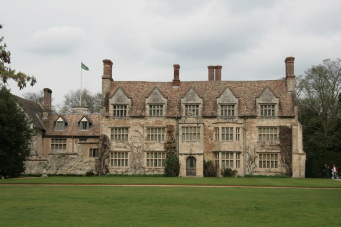Week 16
 Who do you want your estate to go to?
Who do you want your estate to go to?
A will is simply a written document, signed and witnessed, that states your desires regarding distribution of your properties after you die. It also allows you to appoint guardians for your minor children. A trust, however, is much more encompassing, giving you more detailed control of your estate and possibly providing important tax benefits as well. The right strategy depends on your individual circumstances. For some, a trust is essential to protecting their assets and avoiding huge problems down the road, while for others it may be a waste of time and money.
There are several important benefits of setting up a trust, the most important of which are to avoid taxes, avoid probate, and protecting your estate.
One of the best ways to protect an estate from estate taxes upon death is through an irrevocable life insurance trust. This type of trust shelters all life insurance death benefit proceeds from estate taxes, saving you (and your beneficiaries) from possibly paying a substantial check to the IRS!!
By putting certain properties in a trust, you may also avoid the hassles, costs, and lack of privacy that correspond with probate. The trust clearly defines what will happen to the properties after your death.
The final important benefit of a trust is to control the estate even after you die and protect your beneficiaries once they have control of the estate. For example, you might be concerned about handing $1 million to your 13 year old if something were to happen to you prematurely. A trust allows you to determine that the money would be passed on out of the trust to your child in smaller increments until they reach an age that you determine. We might be surprised how fast a teenager could rip through a million bucks and have nothing to show for it!!
It is important to seek the advice of a trusted estate planning attorney to determine what solution is the right fit for you if you are uncertain.
There are several important benefits of setting up a trust, the most important of which are to avoid taxes, avoid probate, and protecting your estate.
One of the best ways to protect an estate from estate taxes upon death is through an irrevocable life insurance trust. This type of trust shelters all life insurance death benefit proceeds from estate taxes, saving you (and your beneficiaries) from possibly paying a substantial check to the IRS!!
By putting certain properties in a trust, you may also avoid the hassles, costs, and lack of privacy that correspond with probate. The trust clearly defines what will happen to the properties after your death.
The final important benefit of a trust is to control the estate even after you die and protect your beneficiaries once they have control of the estate. For example, you might be concerned about handing $1 million to your 13 year old if something were to happen to you prematurely. A trust allows you to determine that the money would be passed on out of the trust to your child in smaller increments until they reach an age that you determine. We might be surprised how fast a teenager could rip through a million bucks and have nothing to show for it!!
It is important to seek the advice of a trusted estate planning attorney to determine what solution is the right fit for you if you are uncertain.
Homework:
|
O - Contact your Estate Planning Attorney about creating a this document for you. If you don't have an Estate Planning Attorney please contact us and we will put you in touch with a good one. In the mean time you can look at the following GENERAL document and start getting an idea what you would like in this document. Please read our Disclaimer regarding this document.
O - Print off and decide what you would like on your Last Will and Testament. ***Remember we are not attorney's!!! These forms should be used as a bridge until you have time to meet with your attorney. Heaven forbid you get in an accident tomorrow and have absolutely NOTHING!!!!*** |
|
| ||||||||||||
Extra Credit
|
O - Contact your estate planning attorney, or contact LIFE 1010 and we will put you in touch with a good one in your area, regarding a consultation to determine if a trust is appropriate for you.
|

